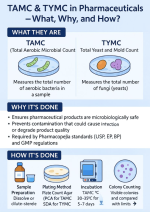Hey everyone,
I've been diving deep into peptide handling protocols lately and wanted to start a discussion about something that seems simple but could make a huge difference in your research: Do you filter your reconstituted peptides before use, or do you use them as is?
Why This Matters:
For those just getting started with peptides, filtering might seem like an extra, unnecessary step. However, it's actually crucial for several reasons:
- Safety First: Unfiltered peptides may contain bacteria, particulate matter, or manufacturing residues that could cause infection, inflammation, or adverse reactions when used in research settings.
- Protecting Your Investment: Quality peptides aren't cheap! Using them without proper filtration is like buying premium fuel for your car but pouring it through a dirty funnel. You're compromising what you paid for.
The Real Value:
When you filter your reconstituted peptides through a proper 0.22 μm syringe filter, you're:
- Removing potentially harmful bacteria and particles that could cause injection site reactions or infections
- Maximizing the purity of your product, which directly translates to more reliable outcomes
- Protecting yourself from potential contaminants introduced during manufacturing or shipping
Beginner-Friendly Best Practices:
If you're new to this, here's what you need to know:
What to Buy:
- Get sterile 0.22 μm syringe filters (PES/Polyethersulfone filters are best as they don't absorb your peptides)
- Make sure you have sterile syringes to use with the filters
- Consider the volume you'll be filtering (smaller 4mm filters for under 4ml, larger 13mm filters for more)
Simple Process:
- Draw your reconstituted peptide into a sterile syringe
- Attach the filter to the syringe
- Slowly push the liquid through the filter into your sterile storage vial
- Label appropriately with contents and date
Remember that filtering is not just a "nice to have" but a fundamental step that separates proper research protocols from potentially dangerous shortcuts. The small investment in filters (usually $1-2 each) provides enormous value in terms of safety.
Has anyone here experienced noticeable differences between filtered and unfiltered peptides (especially with overseas purchases)? Or perhaps you've always filtered but weren't sure why it matters? I'd love to hear your experiences!

